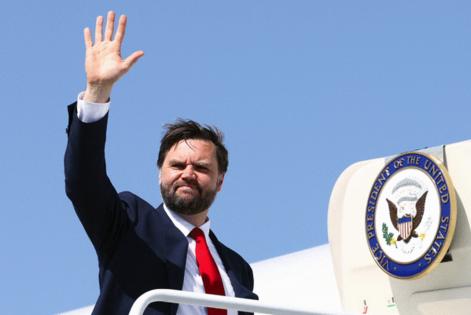US seeks to stop India-Pakistan tensions sparking wider conflict
Published in News & Features
Vice President JD Vance said the U.S. was working to ensure tensions between India and Pakistan don’t escalate into a broader regional conflict in the wake of an attack last week that killed dozens of people in Indian-controlled Kashmir.
“I’m worried about any time you see a hot spot breaking out, especially between two nuclear powers,” Vance said in a podcast interview with Bret Baeir of Fox News.
Relations between the nuclear-armed nations have rapidly deteriorated after the attack, which India and the U.S. have called an act of terrorism. Indian Prime Minister Narendra Modi’s government has accused Pakistan of involvement and vowed to punish those responsible. Pakistan has denied any links to the assault and warned of retaliation if India takes military action.
Vance said the U.S. has been in close contact with officials in India and Pakistan.
“Our hope here is that India responds to this terrorist attack in a way that doesn’t lead to a broader regional conflict,” Vance said in the interview, adding the U.S. wants to see Pakistan cooperate as much as possible with India “to make sure that the terrorists sometimes operating in their territory are hunted down and dealt with.”
Secretary of State Marco Rubio spoke with top officials from India and Pakistan on Wednesday, asking them to “maintain peace and security in South Asia.” He told Shehbaz Sharif, Pakistan’s prime minister, of the need to condemn the attack and re-establish direct communications, according to a statement from the State Department.
U.S. Defense Secretary Pete Hegseth also spoke to Defense Minister Rajnath Singh on Thursday, saying he supported India’s right to defend itself, New Delhi said in a statement.
Indian officials are pushing for the perpetrators to be punished. After his call with Rubio, Foreign Minister Subrahmanyam Jaishankar reiterated that the attackers, as well as their “backers and planners” should be brought to justice. Singh singled out Pakistan for blame, saying the country “has been exposed as a rogue state, fueling global terrorism, and destabilizing the region.”
Sharif’s adviser on political affairs, Rana Sana Ullah Khan, said Thursday Pakistan is ready to join a probe by Indian officials into the attack. “A war between two nuclear powers doesn’t end in victory or defeat for either side but on destruction of both nations,” he said in an interview with Geo News.
Indian media previously reported that Modi has given his armed forces free rein to decide on the timing, targets and mode of response. Pakistani authorities pledged a “befitting and decisive” response to any military strike.
So far, both sides have restrained themselves to largely diplomatic measures and relatively minor ceasefire violations along their disputed border.
Challenging times
Markets in both countries showed mixed performance on Friday. In India, the rupee erased intraday gains to close lower, while stocks ended the day flat. Pakistan’s stocks rose 2.5%, the biggest gain in four months, and the currency remained stable.
The tensions arise at a time when both countries are grappling with economic challenges. India’s growth has been losing momentum for several months, while Pakistan is only beginning to emerge from a deep economic crisis and remains heavily reliant on support from the International Monetary Fund.
The Indian government has requested that the IMF review its loan to Pakistan, an official told reporters in New Delhi on Friday, speaking on condition of anonymity. The official did not provide a reason for the request.
In response to the comment, Khurram Schehzad, advisor to Pakistan’s finance minister, said that the country’s IMF program is “well on track.”
“Interest has been very high for investing and supporting Pakistan as the economy turns around,” he said.
----------
With assistance from Derek Wallbank, Kartik Goyal, Kamran Haider and Ruchi Bhatia.
©2025 Bloomberg L.P. Visit bloomberg.com. Distributed by Tribune Content Agency, LLC.







Comments